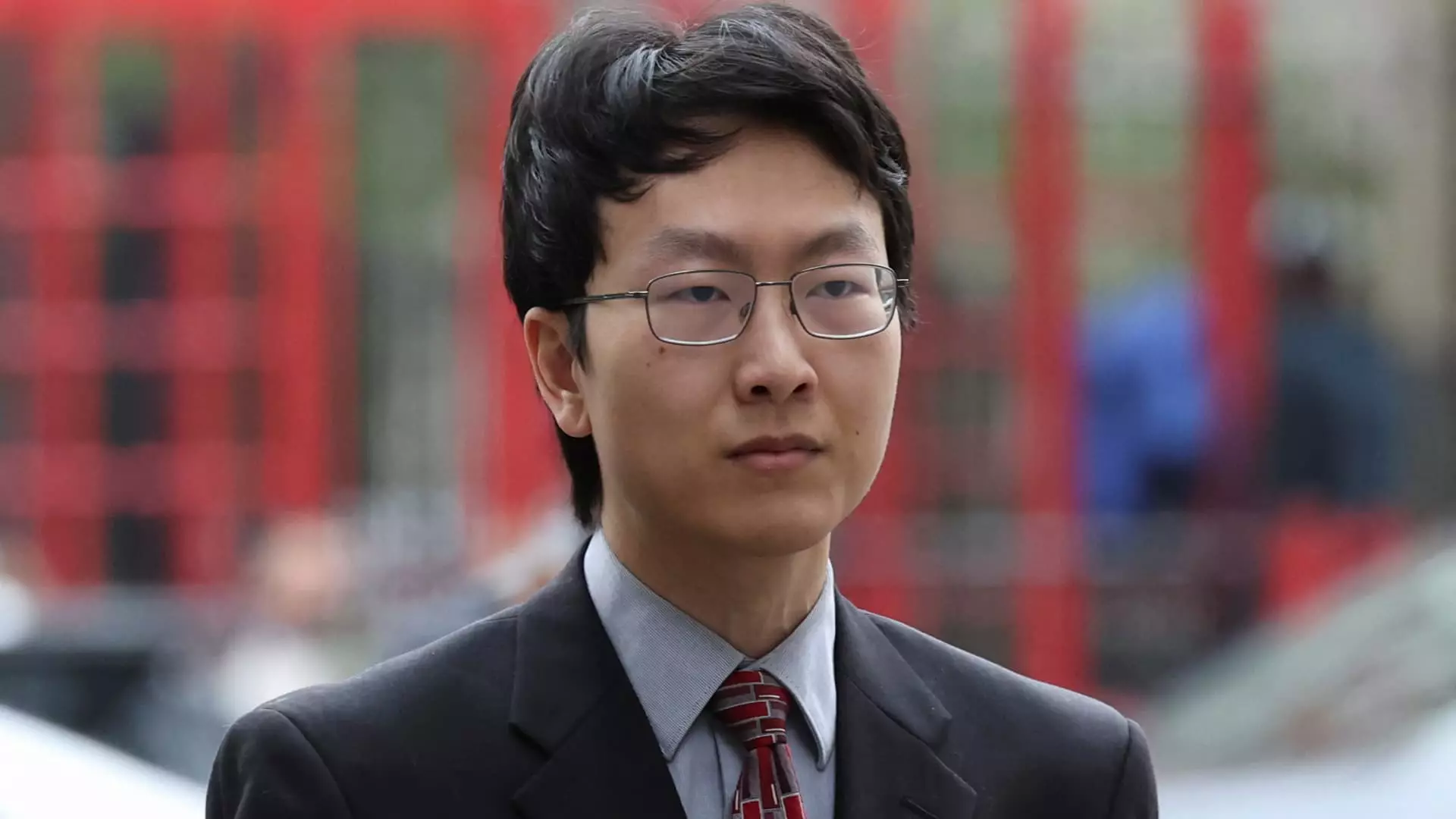The collapse of FTX, once a dominant player in the cryptocurrency exchange market, revealed the darker underbelly of the digital asset world. The recent sentencing of Gary Wang, a former co-founder and technology chief of FTX, symbolizes a turning point in this high-profile saga, highlighting not only the repercussions of corporate malfeasance but also the intricate dance between accountability, cooperation, and the quest for redemption in the face of wrongdoing.
Gary Wang was sentenced to time served with an additional three years of supervised release after pleading guilty to four serious charges, including wire fraud and conspiracy to commit both commodities and securities fraud. Facing potential penalties of up to 50 years, Wang’s situation illustrates the gravity of his actions within a company that mismanaged customer funds in a scheme that ultimately harmed many. The ordered forfeiture of $11 billion further underscores the scale of the financial turmoil stemming from FTX’s operational decisions and the legal framework in which these crimes were prosecuted.
Interestingly, Wang was among the last of the FTX executives to receive his sentence, following those of notable figures such as Sam Bankman-Fried and Caroline Ellison. This delay in sentencing could be indicative of his cooperative role in the ongoing investigations. His testimony against Bankman-Fried was seen as crucial, offering the prosecution insights into the complex operations of FTX, a company that at its peak exemplified both potential innovation in the crypto space and glaring ethical failures.
During his sentencing, Wang expressed remorse, stating, “I took the easy path, the cowardly path, instead of doing the right thing.” This moment of vulnerability highlights the emotional dimensions of corporate crime. Wang’s admission signifies a recognition of his failings not just as a professional but as a human being, reflecting a broader theme of personal accountability that often gets lost amidst legal jargon and corporate blame-shifting.
In a compelling display of familial support, Wang’s parents and pregnant wife were present, reminding observers of the personal costs that accompany corporate scandals. Such dynamics invite a conversation about redemption and the possibility for reformation for individuals caught in the throes of organizational wrongdoing.
Wang’s decision to cooperate with authorities set him apart from other executives involved in the scandal. He was noted as “the easiest cooperating witness” by Assistant U.S. Attorney Nicolas Roos, who praised him for his technical expertise and role in unraveling the convoluted mechanisms that allowed FTX to misappropriate customer funds. This indicates the potential for leniency in sentencing when defendants choose transparency over silence.
Decoding complex financial fraud and contributing to the establishment of preventative measures can serve as a pathway to redemption. Wang’s ongoing development of tools aimed at detecting fraudulent activities in both cryptocurrency and stock markets not only highlights his commitment to making amends but also showcases the transformative power of technology when applied ethically.
The collective sentencing of FTX executives, culminating in Wang’s case, marks a significant chapter in the narrative of corporate accountability in the cryptocurrency arena. Each sentence, from Bankman-Fried’s 25 years to Ellison’s two years, sends a clear message that financial malfeasance will not go unchecked. Judge Lewis Kaplan, with decades of experience in sentencing some of the most notorious financial criminals, emphasized the unprecedented nature of the FTX case, underscoring the need for judicial vigilance in a landscape marked by rapid innovation yet riddled with ethical pitfalls.
As the dust begins to settle, it is crucial for the cryptocurrency market to learn from these harrowing experiences. The blend of regulatory scrutiny and individual accountability must evolve to safeguard against future collapses. The FTX saga serves as both a cautionary tale and a potential blueprint for a more robust framework that holds individuals and corporations alike accountable for their actions.
The sentencing of Gary Wang, alongside his co-defendants, is emblematic of the harsh realities surrounding corporate fraud and the human element entangled in these cases. As individuals navigate the consequences of their decisions, a shared responsibility emerges not only for the personal paths of the executives but also for the integrity of the cryptocurrency industry as a whole. The lessons learned from FTX must resonate beyond courtrooms and into the future of finance, ensuring that ethics remain at its core.

